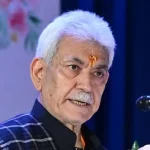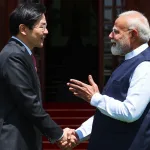New Delhi, Dec 13: Space is becoming an important component of India’s economy, Union Minister Dr Jitendra Singh said on Wednesday. He said Space StartUps attracted private investment amounting to more than Rs 1,000 crore in this Financial Year since April.
The Union Minister of State (Independent Charge) Science & Technology; MoS PMO, Personnel, Public Grievances, Pensions, Atomic Energy and Space, said this during an exclusive interview here at “Agenda Aaj Tak”.
“India’s Space economy today stands at a modest $8 billion, but our own projection is that by 2040 it will multiply manifold. But more interesting is that according to some international observers, for example, the recent ADL (Arthur D Little) Report mentions that we could have the potential of $100 Billion by 2040,” he said.
Dr Jitendra said ISRO has so far launched more than 430 foreign satellites, earning more than 290 Million Euros from European satellites and over 170 million US dollars by launching American satellites.
“India has a rapidly rising number of Space sector Startups since Prime Minister Narendra Modi initiated reforms in the Space sector. Within a short span of just about four years, the number of Space Startups has gone up from a mere single digit to over 1180, with some of the earlier ones having turned into lucrative entrepreneurs,” he said, adding, “Prime Minister Shri Narendra Modi has broken taboos of the past by opening the Space sector to public-private-participation. From just 1 Startup in the Space sector in 2014, we now have 190 Space Startups.”
The union minister gave full credit to PM Modi for enabling India’s Space scientists to vindicate the dream of their founding father Vikram Sarabhai by “unlocking” India’s Space sector and providing an enabling milieu in which India’s huge potential and talent could find an outlet and prove itself to the rest of the world.
“India has always had the huge talent pool and passion to dream big, but finally it was PM Modi who gave them a perfect outlet,” he said, adding that India’s space missions are designed to be cost-effective, building upon human resources and skills.
Dr Singh said India’s Space Technology is virtually touching every person’s life, with the application of Space Technology in different sectors like Disaster Management, SVAMITVA, PM Gati Shakti, Infrastructure such as Railways, Highways & Smart Cities, Agriculture, Water Mapping, Telemedicine and Robotic Surgery.
Referring to Ms Nigar Shaji, Project Director, Aditya L1 Mission, ISRO and Ms Kalpana Kalahasti, Associate Project Director, Chandrayaan-3, ISRO, both of whom were sharing the stage with him, Dr Jitendra Singh said, “India’s Space programme is witnessing a big change as Women are now leading the Space projects.”
On ISRO’s future plans, he said India’s first unmanned “Gaganyaan” mission is undergoing a series of preliminary tests. “Before the manned Gaganyaan mission, there will be a test flight next year, which will carry ‘Vyommitra’, the female robot astronaut,” he said.
Referring to the Deep Sea Mission project, Dr Jitendra said a vehicle called MATSYA will carry three persons to a depth of 5,000-6,000 metres for exploration of deep-sea resources like minerals. This mission, he said, is expected to be realised in the next three years.
“If an Indian travels to Outer Space about the same time as another Indian explores the deep sea 5 km below, that may be a mere coincidence,” he said.
‘Govt using AI to enhance grievance redressal mechanism’
The government is using next-generation Artificial Intelligence (AI) enabled technology to enhance the capacity of the Centralised Public Grievance Redressal and Monitoring System (CPGRAMS) portal, Union Minister Dr Jitendra Singh said on Wednesday. He said the Data Strategy Unit has also been established for root cause analysis of grievances and bringing systemic reforms.
The Union Minister of State (Independent Charge) Science & Technology; MoS PMO, Personnel, Public Grievances, Pensions, Atomic Energy and Space, Dr Jitendra Singh gave this information in reply to a question in the Lok Sabha.
Dr Jitendra said these reforms have resulted in a decrease in pendency and an improvement in the average time of disposal of Public Grievances. Ministries/ Departments have disposed of more than 1 lakh cases/per month for the last 16 months continuously. The pendency of PG cases in central Ministries/Departments stands at an all-time low of 0.63 lakh cases.
Among the 10-step reforms to ensure effective redressal of public grievances formulated by CPGRAMS include breaking language barriers by making CPGRAMS available in all scheduled languages, benchmarking performances of Ministries/Departments, States/UTs through Grievance Redressal and Assessment Index (GRAI), publication of Monthly reports for both the Central Ministries/Departments and States/UTs, Feedback Call Centre for citizen feedback on quality of redressal, integration of various grievance portals of Central Ministries/States with CPGRAMS and expanding CPGRAMS outreach in rural India through Common Service Centers (CSC).
“Redressal of Public Grievances was also one of the thrust areas of the Special campaign conducted by the government on institutionalising Swachhata and reducing pendency in Government offices from Oct 02 to 31. About 5,21,958 (99.4%) public grievances have been disposed of during the Special Campaign 2023,” he said, adding, “In the year 2023, CPGRAMS portal has received 19.45 lac citizen grievances (Up to 30 November 2023) and about 19.60 lac grievances including backlog grievances have been disposed of.”
The union minister added, “Centralised Public Grievance Redressal and Monitoring System (CPGRAMS) is a web-based portal where citizens can file their grievances pertaining to the Ministries/Departments of the Government of India or States/UTs. Every Ministry and the States have role-based access to this system. CPGRAMS receives about 20 lakh grievances on average every year from the public.”





